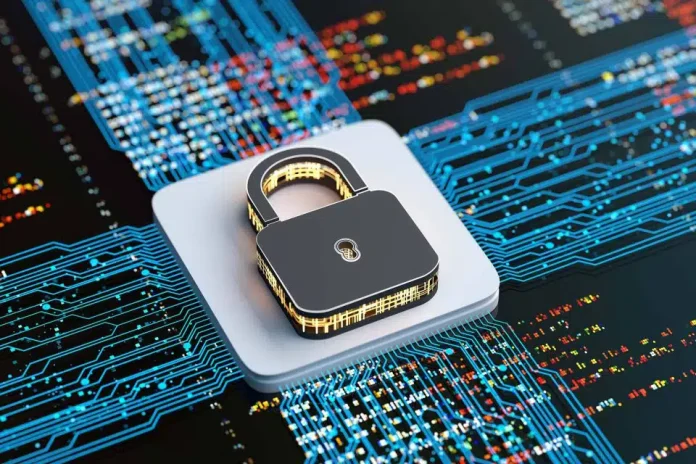Online data protection matters for every user. Your personal details, passwords, and files stay at risk when you do not follow safe habits. Cyber attacks increase each year. You can reduce the risk with simple steps that improve your online safety. Many readers on Answer Ques follow structured routines to keep their accounts and devices secure. You can apply these same steps at home.
Understand How Your Data Gets Exposed
Your data can leak from weak passwords, unsafe websites, unprotected WiFi, outdated apps, or careless clicks. When you understand where the risk comes from, you protect yourself better. Pay attention to how you use your phone, laptop, and email. Small mistakes create large problems.
Common risks include:
Unsafe downloads
Public WiFi use
Weak login details
Clicking unknown links
Not updating your device
Stay aware of these areas in your daily online activity.
Use Strong and Unique Passwords
Create passwords that are hard to guess. Use a mix of letters and numbers. Do not repeat the same password for different accounts. When one account gets hacked, the rest stay safe if you use unique passwords.
Use a password manager if you cannot remember multiple passwords. It stores your details safely. Many people rely on this tool for daily protection.
Turn On Two Factor Authentication
Two factor authentication adds a second step to your login. It sends a code to your phone or email. Even if someone steals your password, they cannot enter without the code. Enable it for email, banking, social media, and cloud accounts.
This simple step blocks many hacking attempts.
Avoid Public WiFi for Sensitive Tasks
Public WiFi looks convenient but it is unsafe. Hackers can watch the data you send through it. Avoid checking bank accounts or making payments on public networks. Use your mobile data instead.
If you must use public WiFi, connect through a secure app that encrypts your data.
Update Your Devices Regularly
Your phone and laptop need updates to fix security issues. Install updates when your device asks for them. Do not delay. Outdated software creates gaps that hackers can use.
Keep your apps updated too. Many apps face security flaws that developers fix through updates.
Download Files From Trusted Sources Only
Do not download files from unknown websites. Many viruses hide in free downloads, email attachments, or pop up ads. Only use official websites and trusted platforms.
If a file looks suspicious, avoid it. Safe habits protect your device from damage.
Use Secure Websites Only
Check the website address before entering your information. Secure websites start with “https”. You will also see a lock icon. This means the site protects your data with stronger security.
Never enter personal information on a site without this protection.
Back Up Your Data
Store copies of your files in more than one place. Use a cloud service or an external storage device. This keeps your data safe if your device gets hacked or damaged.
Backups save you from complete loss. They let you recover your files quickly.
Control Access to Your Devices
Set a screen lock on your phone and computer. Use a PIN, fingerprint, or face lock. This stops others from entering your device without permission. Even children or guests can access more than you expect if your device stays unlocked.
Admin Wells often highlights the importance of local device control for strong home security.
Protect Your Email Account
Many hackers target email because it connects to your banking, social media, and apps. Use a strong password. Avoid clicking unknown links. Remove old accounts you do not use. They can still expose your information.
Your email is your main identity online. Treat it carefully.
Check App Permissions
Apps often request access to your contacts, location, camera, or files. Some apps need these permissions. Many do not. Review your app list. Remove apps that you do not use. Turn off permissions that are unnecessary.
Fewer permissions mean fewer risks.
Be Careful With Social Media Sharing
Limit the personal information you share. Avoid posting your location in real time. Avoid sharing phone numbers, addresses, or travel plans. Hackers and strangers can use this information against you.
Use privacy settings to control who sees your posts.
Avoid Unknown Links and Emails
Many threats arrive through fake emails. These emails look real but lead to unsafe websites. If an email looks unusual, ignore it. Do not click links. Do not download attachments. Delete the email.
What News 2 Day often reports how phishing attempts rise during seasonal events, which makes careful checking even more important.
Check the sender’s address before trusting any message. Small details reveal unsafe emails.
Use Antivirus Protection
Install reliable antivirus software. It detects harmful files and blocks threats. Keep your antivirus updated. A secure device needs active protection.
Antivirus software adds an extra layer of safety in your daily online routine.
Secure Your Home WiFi
Set a strong WiFi password at home. Use modern security options in your router settings. Change your default router name and password. Default details are easy to hack.
A secure WiFi network protects every device in your home.
Monitor Your Activity Regularly
Check your bank statements, email login history, and social media activity. Look for strange actions or login attempts. Early detection prevents bigger issues.
Monitoring helps you stay alert. You react faster when something feels wrong.
Teach Family Members Good Practices
Children and elders may click unsafe links without understanding the risk. Teach them simple habits. Tell them to avoid unknown messages. Guide them on safe downloads.
A safe home network depends on everyone, not one person.
End Summary
You can protect your data with simple daily actions. Use strong passwords. Turn on two factor authentication. Avoid public WiFi for sensitive tasks. Update your devices. Back up your data. Limit permissions on your apps. Review your online activity often. Hover Phenix explains how consistent habits improve online privacy across different homes. When you follow these steps, your data stays safer and your online activity becomes more secure.

